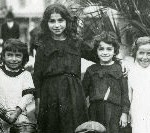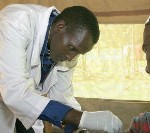The relationship between territory, memory, and heritage on the Oswaldo Cruz Foundation’s headquarters campus and its surroundings is analyzed in the second supplement of volume 30 of História, Ciências, Saúde – Manguinhos.
The Oswaldo Cruz Foundation (Fundação Oswaldo Cruz, Fiocruz) is a public institution of great international importance in the area of science and health, which operates under the auspices of the Brazilian Ministry of Health. It is headquartered in Manguinhos, a district in Rio de Janeiro. The site was originally chosen to develop a maritime and rail transport system in the late nineteenth century, resulting from the expansion and transformation of the urban fabric and the shift from rural to industrial activity. However, nowadays, it represents yet another example of segregated urban development, whose deepening socioeconomic divides are exemplified in the favela territories of Rio de Janeiro. In response to this scenario, Fiocruz has accumulated a history of action in the territory to promote health and reduce socioenvironmental inequities.
This supplement presents two articles translated into English. One of them, A history under construction: Manguinhos-Maré in the present time, explores the spatial transformations that took place in the territory occupied by the foundation from 2000 onward. Researchers of the Department of Historical Heritage of Fiocruz Renato da Gama-Rosa Costa, Renata Soares Costa Santos, and Matheus Gonçalves Góes argue that the two first decades of the twenty-first century were representative of the contemporary history of the Oswaldo Cruz Foundation (Fundação Oswaldo Cruz) and demonstrate its active role in the national health scenario.
The transformations in the use of this territory and its institutional policy within the national context are described, along with the social demands that have impacted the institution, namely large-scale urban transformations and pandemics. This research uses the premises of the history of the present to investigate the changes that took place on the Manguinhos-Maré campus and in the discourse of the institutions involved in managing and planning these changes through analysis of institutional reports, digital mapping, and aerial images.
In another article translated into English published in this dossier, Social participation and territory: possible dialogues for the sustainable management of cultural heritage, the object of analysis is the Manguinhos Historical Architectural Site at Fundação Oswaldo Cruz and its Requalification Plan, which aims to transform Fiocruz, headquarters in Manguinhos, Rio de Janeiro it into a “park campus.”
Based on the concepts of culture, territory, integrated conservation, and sustainability, this article by Marcos José de Araújo Pinheiro, Professor of Graduate Program in the Preservation and Management of Cultural Heritage of Science and Health/Casa de Oswaldo Cruz/Fiocruz and Roberta dos Santos de Almeida, Architect at Casa de Oswaldo Cruz, analyses the meaning of social participation in the recognition, appropriation, preservation, and enhancement of cultural heritage.
This dossier also features four other articles on heritage, territory, and memory, including the urbanistic and social-historical context of the communities of Manguinhos. Check out the entire issue: Volume: 30 Supplement 2, Published: 2023









